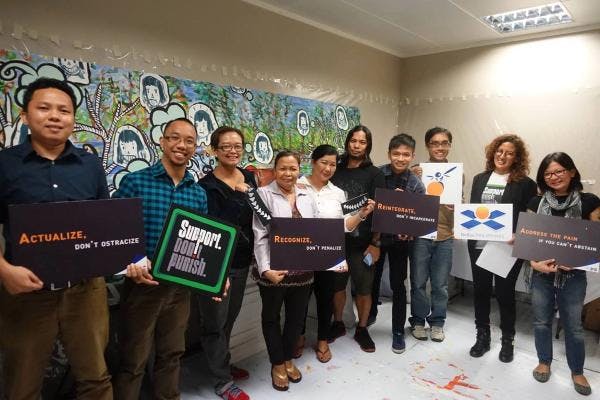Drugs and HIV in the Philippines: How kindness has made a difference
By NoBox Philippines
For ~30 years, HIV prevalence among people who inject drugs in the Philippines remained below 1%. In one year, that number rose to 53% in 2009 - 2010.
Realizing that simply telling people not to use drugs and arresting them when they do wouldn’t slow HIV infections, health workers advocated for a new approach: harm reduction. An Operations Research with a syringe distribution component was proposed where, in addition to interventions for HIV and drug use, participants wouldn’t be arrested for possessing syringes.
It took 5 years before the research was approved in 2014. When it was, advocates felt hope. They could finally give the help people needed. Hundreds flocked to the program—many who’ve never gone to the clinic before, fearing discrimination and arrest.
Through kindness and understanding, harm reduction saved lives.
But politicians advocating against illegal drugs weren’t convinced. After 6 months, the program was halted. Those hundreds of people dwindled to less than a dozen a day, the connection lost.
Now, amendments to our HIV/AIDS law have been proposed—ones that omit “harm reduction,” open the door to mandatory HIV testing, and diminish the agency of civil society organizations in the response. All this will accomplish is drive people away from help.
The benefits of harm reduction—reaching people we couldn’t before, giving the education, counselling, and treatment they need—haven’t been enough to keep it alive.
In the world, we’re now the second highest in HIV prevalence among people who inject drugs and have the fastest growing HIV epidemic. If we are committed to the health and future of Filipinos, evidence must outweigh moralism. Kindness must overshadow fear.
We urge our policymakers: work alongside CSOs, review the evidence for harm reduction, continue the Operations Research, and reconsider the proposed amendments.
Harm reduction, and the people who need it, deserve a chance.
Keep up-to-date with drug policy developments by subscribing to the IDPC Monthly Alert.
